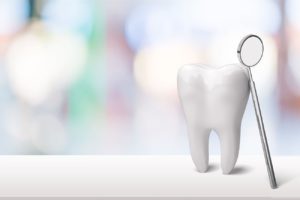Your teeth are designed to grind the food you eat without issue or injury. But your teeth are not indestructible. Though they can withstand a great amount of wear and tear from chewing and biting, teeth can break under certain circumstances.
But even without acute dental injury, teeth can see structural harm gradually over time. This can occur for a number of reasons, including tooth decay and enamel erosion, which are two separate conditions that can hurt your teeth.
Knowing more about these problems that can permanently harm your smile will help you better prevent them. Read on to learn more about how damage from dental erosion differs from tooth decay.

Tooth Structural Damage from Erosion
Dental erosion refers to the wearing down of the enamel, the outer layer of your tooth. This happens for many reasons, including poor oral habits but also factors outside your control like aging or certain medications. Consuming acidic food items and skipping oral hygiene are some primary causes of this dental damage.
The enamel can thin and weaken due to erosion. You might notice color changes in your teeth due to this damage as well as tooth sensitivity. This happens because lost enamel will expose nerves in the interior of the tooth.
Once gone, the enamel does not regenerate, so this damage is permanent. Weakened tooth enamel will leave your smile vulnerable to other dental threats, so you should not ignore this problem. While you cannot regrow lost enamel, your dentist can treat the issue by replacing it with restorative dental solutions.
You should call your dentist about any issues with your smile. But you should also visit your dentist for routine check-ups too. They can check your teeth for signs of this damage and offer preventative care to protect your smile from erosion.
Bacteria Leads to Tooth Decay
Tooth decay is another type of structural damage that can hurt your teeth. It occurs when bacteria infiltrate the enamel and begin to eat away at the teeth, leaving a hole in the tooth called a cavity.
Your mouth naturally carries bacteria, but good oral hygiene and healthy habits will stop excess bacteria from spreading and hurting your teeth with decay and other problems. Weakened enamel from dental erosion can make you more likely to suffer from tooth decay.
A cavity can present with discoloration in the tooth and sensitivity like enamel erosion. Your dentist also checks your smile for cavities during a routine appointment, so do not skip this dental care.
Tooth decay will worsen without urgent treatment from your dentist, so do not delay resolving this issue. Bacteria will penetrate deeper into the tooth, causing even further damage, so prompt care is crucial to protect your smile.
The dentist treats cavities by drilling away the decay and filling the resulting hole with composite resin to restore the dental structure. However, if too much of the tooth has been eaten away as with advanced tooth decay, you might need a dental crown to reshape and protect the tooth after this treatment.
